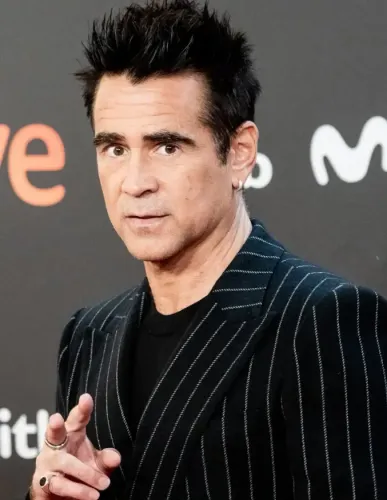Will Pink Floyd's David Gilmour Ever Reunite with Roger Waters?

Synopsis
Key Takeaways
- David Gilmour has ruled out any future performances with Roger Waters.
- The longstanding feud between the two reflects deep personal and artistic disagreements.
- Polly Samson's criticism of Waters adds another layer to the ongoing conflict.
- Pink Floyd sold their music rights, aiming to alleviate internal tensions.
- The complexities of their relationships highlight challenges in creative partnerships.
Los Angeles, Oct 19 (NationPress) David Gilmour, the iconic guitarist of Pink Floyd, has firmly dismissed the idea of ever performing alongside former bandmate Roger Waters again.
At 79 years old, Gilmour stated that there is no chance for reconciliation with Waters, 82, who departed from the band in 1985. He emphasized that the possibility of them sharing the stage again is nonexistent, according to a report by Female First UK.
When questioned by The Telegraph about what it would take for him to consider a performance with Waters in the future, he replied, “Nothing. There is no possible way that I would do that.”
In 2023, Gilmour’s wife, Polly Samson, publicly criticized Waters on X, labeling him as “antisemitic to his rotten core” amid a dispute regarding Israel and Ukraine.
According to Female First UK, she further described him as a “Putin apologist and a lying, thieving, hypocritical, tax-avoiding, lip-synching, misogynistic, sick-with-envy, megalomaniac.”
Waters responded to her accusations, calling them “wildly inaccurate” and “incendiary.” Polly stated to The Telegraph her intention behind the post was to clarify her association with Gilmour, expressing that people often gave her uncomfortable looks when they learned she was married to a member of Pink Floyd.
She remarked, “If they knew you’re married to someone from Pink Floyd, half the time people were giving me quite strange looks and it was really uncomfortable and I just wanted to draw a line and make it clear that these were not views held by me or the person I was married to.”
In 2024, Pink Floyd made headlines by selling their music rights, along with their name-and-likeness rights. Gilmour clarified that this decision was not driven by financial motives but stemmed from a desire to escape the ongoing turmoil, stating it was about “getting out of the mud bath that it has been for quite a while.”
He expressed a wish to be “rid of the decision making and the arguments.”









